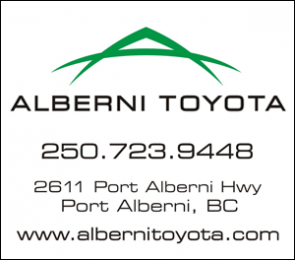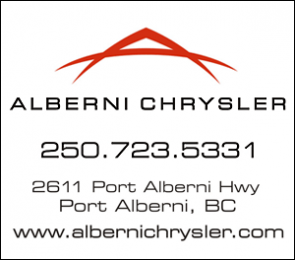After the final prizes are awarded at the end of the Port Alberni Salmon Festival on Labour Day Monday many people start to prepare their boats for winter storage. But, c’mon people, this is the west coast where we can spot a non west-coaster by the umbrella in their hand! The opportunity to get out in the water of the Alberni Inlet is never really closed! After all, there’s still some fish to be caught and prawns to be trapped; as many people do during the Christmas season. However, late fall, winter and early spring do bring a variety of different challenges for which the smart and safe boater should be particularly prepared for before heading out on the water.
Transport Canada’s Office of Boating Safety publishes a great Safe Boating Guide available online at www.boatingsafety.gc.ca. Some of the key highlights from the guide and tips from Marinas Manager, Mike Carter, to ensure you and your vessel are prepared for what the typical “off season” has to throw your way include:
1. Inspect your boat: is your vessel seaworthy and engine fueled? Certain manufacturers’ specifications may advise that you add fuel conditioners. Too often this simple chore is neglected; especially after a long period of disuse, little things pop up that can cause big problems out on the water.
2. Monitor the weather: this is the west coast of Canada and the weather can often turn severe swiftly. Check local weather before you go and have your marine radio tuned to receive weather updates while out on the water; especially from other boaters who may be communicating to others while also out in the water.
3. Make and share a sail plan: just like pilots must file a flight plan in case of emergencies it is also advisable for boaters to share their intended journey with family or friends.
4. Be aware of local hazards: not only should you have and be able to understand nautical maps of your sailing plan area but be aware of particular local area hazards; especially areas that are known to become particularly precarious during inclement weather conditions and rough seas. Speaking with local, experienced mariners is a great way to learn about such “hidden dangers.”
5. Ensure your cabin is well ventilated when using fuel-powered cooking and heating systems to avoid silent, odourless carbon monoxide poisoning. The relatively small cost to purchase and install detectors is well worth the investment.
6. Complete the Guide’s recommended Pre-Departure Checklist that will help you ensure that you have all necessary equipment and have made all the appropriate pre-sailing precautions.
In addition to taking care of yourself and any guests you have aboard please be extra watchful of other boaters and any that may appear to be in any kind of distress. This time of year can be extremely enjoyable to cruise the west coast but your diligence can also, literally, lead to life or death of you, your guests and others with whom we share the waters.
Be Prepared for Winter Boating
Submitted by Port Authority on November 29, 2011.






